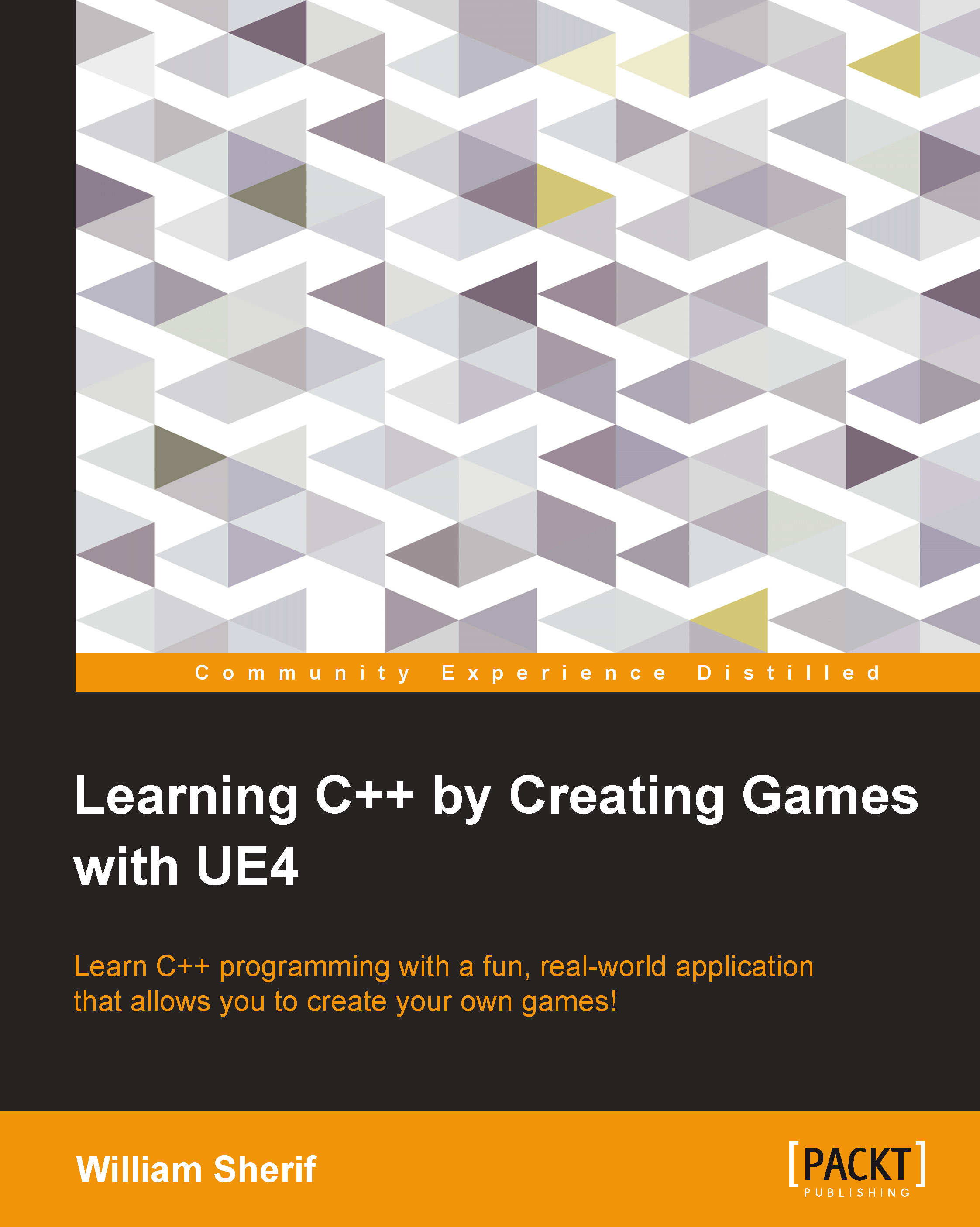-
Book Overview & Buying

-
Table Of Contents

Learning C++ by creating games with UE4
By :

Learning C++ by creating games with UE4
By:
Overview of this book
 Free Chapter
Free Chapter
